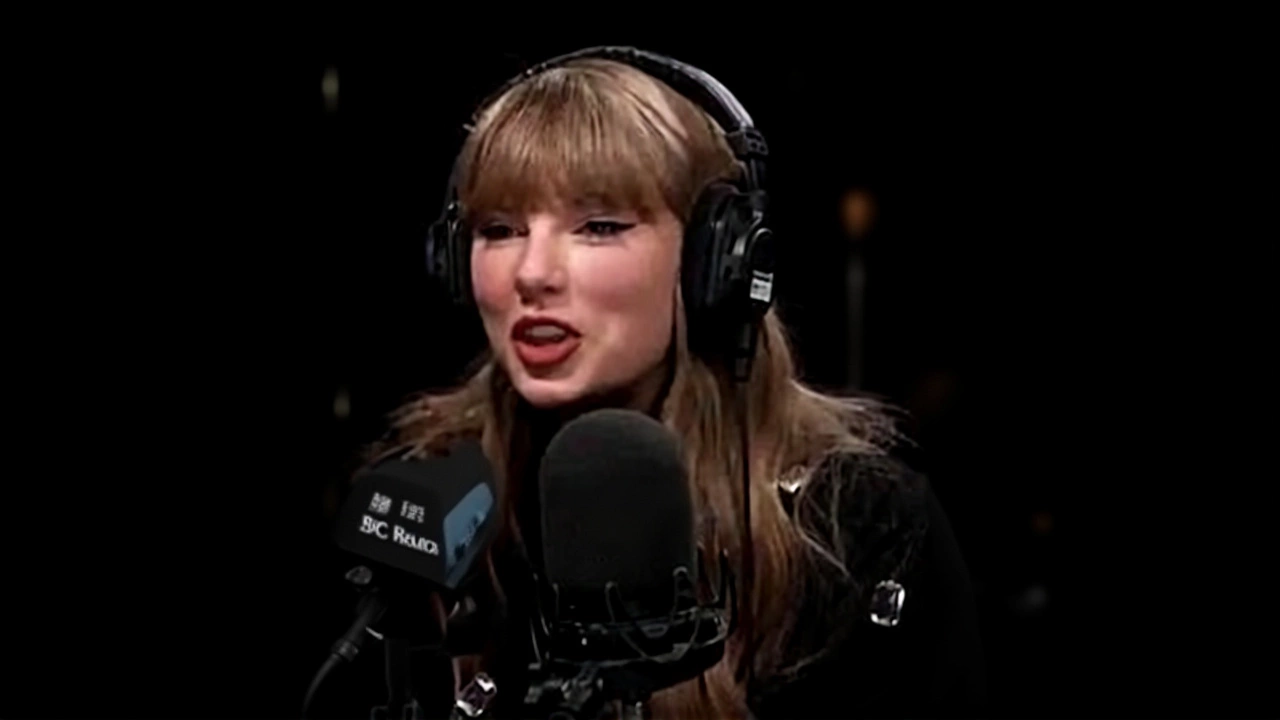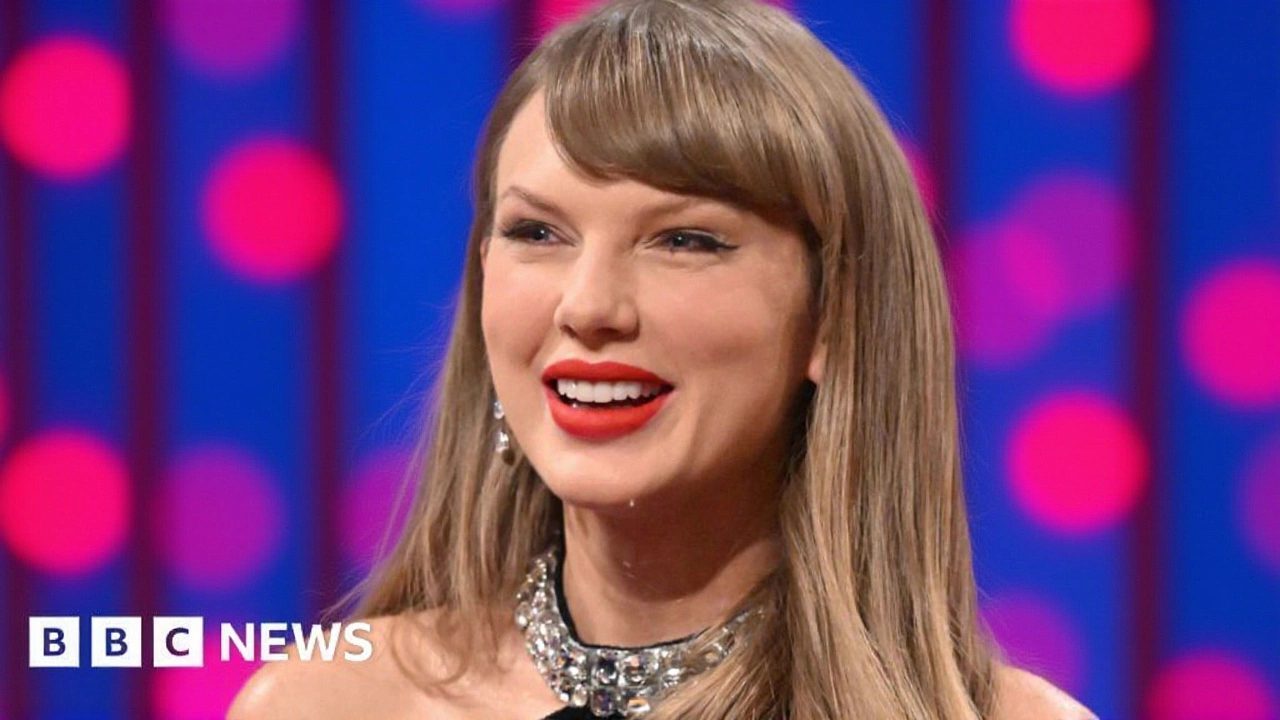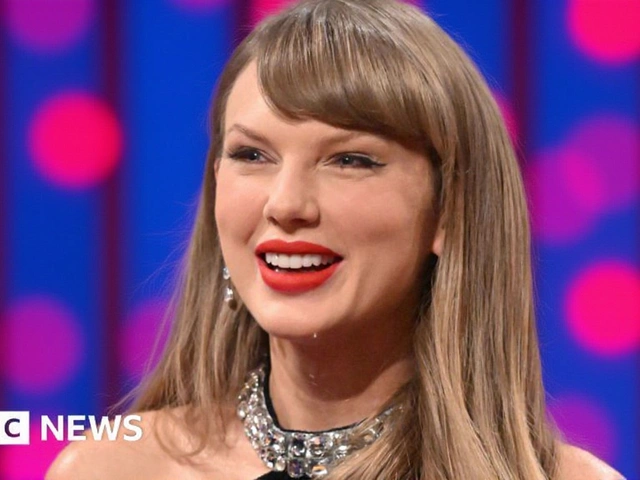When Taylor Swift, singer‑songwriter joined BBC Radio 1 for The Life of a Showgirl Interview with presenter Greg James on 28 October 2025, she tackled a fear that’s haunted her for years: that personal happiness could "dry up" the well of her lyrics. The candid chat, broadcast from the station’s London studios, revealed why the pop icon now feels liberated, and how that shift could shape the next chapter of her music.
Why the Question Matters
Fans and critics have long linked Swift’s most powerful tracks to heartbreak, betrayal, and public scrutiny. From the raw ex‑girlfriend anthems on Red to the revenge‑laden verses of Reputation, the narrative that pain fuels her creativity is ingrained in pop culture. Yet, the very notion that joy might blunt her lyrical edge has been a private anxiety for the artist. In an industry where relevance often hinges on emotional authenticity, her admission sparks a broader conversation about the sustainability of high‑output songwriting.
The Radio 1 Conversation
During the interview, Swift laughed that she once imagined a future where “the more content I am, the less I have to write about.” She explained that the fear intensified after the Time magazine named her Person of the Year in early 2025, praising her lyrics for giving women and girls permission to trust their inner voice. “It was flattering, but also a bit terrifying,” she admitted. “If I’m happy, what’s the story?”
Greg James steered the discussion toward concrete examples, prompting Swift to talk about her newly released track “Opal Light.” The song, she explained, was born out of a period of personal tranquility and aims to reassure listeners that “it’s all right” when life feels heavy. She said the melody emerged late one night while she was humming in the kitchen, a setting far removed from the stormy studio sessions that birthed many of her hits.
Time Magazine’s Person of the Year: A Double‑Edged Sword
The Time accolade highlighted Swift’s impact beyond the charts, framing her as a cultural catalyst. The magazine’s cover story quoted her lyrics as a “permission slip for women and girls to listen to their own internal compass.” While the honor cemented her influence, it also amplified the pressure to keep delivering songs that resonate on a societal level. Swift noted that the title made her scrutinize each line with a new sense of responsibility.
Turning Setbacks Into Songwriting Gold
Swift reiterated a philosophy she’s shared since her debut: setbacks are merely raw material. “You think you’ve taken a step back, but later you realize that those moments gave me the most compelling verses,” she said. She cited the fallout from her 2023 tour, the public spats with other artists, and even a failed partnership with a record label as chapters that enriched her storytelling.
The artist also referenced her most recent album, Midnights (2022), as proof that happiness needn’t mute creativity. “I wrote a lot of those songs during a very calm period in my life. The contrast between the mood of the music and the quiet in my personal world made the tracks stand out.”

What Happiness Looks Like in the Studio
When pressed about her day‑to‑day routine, Swift described a balanced schedule: early‑morning songwriting sessions, yoga, and dedicated time with friends. She insisted that the “happy vibe” doesn’t mean complacency—it simply provides a steadier emotional baseline from which she can experiment.
She added, “When you’re constantly on edge, every song feels like a crisis response. Now, I can sit with a chord for hours because I’m not trying to outrun a feeling. It’s a different kind of intensity.” This shift, she believes, may lead to more nuanced storytelling, where joy is explored as deeply as loss.
Industry Experts Weigh In
Music psychologist Dr. Lena Patel, who studies the link between affect and creativity, told us that Swift’s experience aligns with recent research. “Positive affect can broaden a creator’s cognitive scope, allowing for more complex associations,” Patel explained. “Artists who feel secure often produce work that’s richer in texture.”
Conversely, veteran songwriter Max Martin cautioned that fans may still expect the “tear‑jerker” formula. “The market loves a good breakup anthem,” he said, “but if Swift can flip that script and make a ‘happy heartbreak’ a thing, she’ll stay ahead of the curve.”
What’s Next for Swift?
Swift hinted at a surprise acoustic EP slated for early 2026, featuring stripped‑down versions of tracks from Midnights and a few unreleased songs from the “Opal Light” sessions. She also said she’s collaborating with director Greta Gerwig on a visual album that will blend the introspective tone of “Opal Light” with cinematic storytelling.
Fans can expect the next wave of Swift’s catalog to reflect her newfound equilibrium—a blend of reflective lyricism and upbeat production that proves happiness is not a creative dead‑end but a fresh launchpad.
- Key takeaway: Personal contentment does not diminish Swift’s songwriting prowess.
- Evidence: Recent tracks like “Opal Light” were born during periods of calm.
- Expert insight: Positive emotions broaden creative horizons.
- Future outlook: Upcoming acoustic EP and visual album project.
Frequently Asked Questions
How does Taylor Swift’s happiness affect her songwriting style?
According to Swift, being content gives her a steadier emotional baseline, allowing her to linger on chords and explore nuance rather than scrambling for crisis‑driven lyrics. This shift can lead to richer textures and more varied themes, as reflected in the calm‑infused “Opal Light” and the reflective tracks on her recent album.
What is the significance of the song “Opal Light”?
“Opal Light” serves as a musical balm, offering reassurance that “it’s all right” during tough moments. Swift wrote it during a happy phase, proving that comfort can stem from positivity rather than pain, and it exemplifies her evolving approach to lyrical storytelling.
Why did Time magazine name Taylor Swift Person of the Year?
Time highlighted Swift’s influence in giving women and girls permission to trust their internal voice, emphasizing how her lyrics have become cultural touchstones that inspire self‑expression and empowerment across generations.
What upcoming projects did Swift reveal in the interview?
She teased an acoustic EP for early 2026 featuring stripped‑down versions of songs from Midnights and unreleased material from the “Opal Light” sessions, plus a collaboration with director Greta Gerwig on a visual album that will blend her new calm aesthetic with cinematic storytelling.
How do experts view the link between happiness and creativity?
Music psychologist Dr. Lena Patel notes that positive affect broadens a creator’s cognitive scope, fostering more complex associations. Veteran songwriter Max Martin adds that while audiences expect emotional intensity, a happy perspective can still produce compelling, innovative music.



